Intro
Learn about alcohol detox symptoms, treatment, and recovery with our comprehensive guide, covering withdrawal, rehab, and sober living strategies for a safe and successful detox process.
Alcohol detoxification is a crucial step towards recovery from alcohol addiction. It is a process where the body eliminates the toxic substances associated with alcohol consumption, and it can be a challenging and potentially life-threatening experience if not done properly. The importance of alcohol detox cannot be overstated, as it lays the foundation for a successful recovery journey. In this article, we will delve into the world of alcohol detox, exploring its benefits, working mechanisms, and steps involved in the process.
The journey to recovery from alcohol addiction is not an easy one, but with the right guidance and support, it is possible to overcome the grip of alcoholism. Alcohol detox is the first step towards a life free from the shackles of addiction, and it requires a comprehensive approach that addresses the physical, emotional, and psychological aspects of addiction. As we navigate the complexities of alcohol detox, it becomes clear that it is not just about stopping drinking, but about creating a holistic plan that promotes overall well-being and sets the stage for long-term recovery.
As we explore the realm of alcohol detox, it is essential to understand the risks associated with it. Withdrawal symptoms can range from mild to severe, and in some cases, they can be life-threatening. The severity of withdrawal symptoms depends on various factors, including the duration and amount of alcohol consumption, as well as the individual's overall health. It is crucial to seek medical attention if you or someone you know is struggling with alcohol addiction, as a supervised detox program can significantly reduce the risks associated with withdrawal.
What is Alcohol Detox?
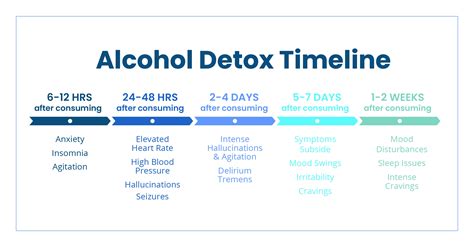
Benefits of Alcohol Detox
The benefits of alcohol detox are numerous, and they include: * Improved physical health: Alcohol detox helps to eliminate the toxic substances associated with alcohol consumption, which can damage the liver, heart, and other vital organs. * Improved mental health: Alcohol detox can help to reduce the symptoms of anxiety, depression, and other mental health conditions associated with alcohol addiction. * Increased energy: Alcohol detox can help to increase energy levels, as the body is no longer expending energy to process alcohol. * Improved sleep: Alcohol detox can help to improve sleep quality, as the body is no longer disrupted by the effects of alcohol.How Does Alcohol Detox Work?
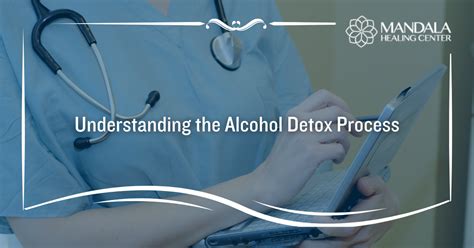
Steps Involved in Alcohol Detox
The steps involved in alcohol detox include: * Seeking medical attention: It is essential to seek medical attention if you or someone you know is struggling with alcohol addiction. * Evaluation: A medical professional evaluates the individual's physical and mental health to determine the best course of treatment. * Stabilization: The individual is stabilized using medications and other interventions to manage withdrawal symptoms. * Detoxification: The body eliminates the toxic substances associated with alcohol consumption. * Maintenance: The individual is supported through the recovery process, which may include counseling, support groups, and medication.Types of Alcohol Detox
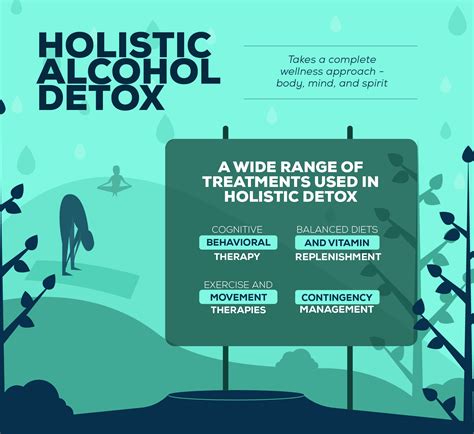
Risks Associated with Alcohol Detox
The risks associated with alcohol detox include: * Withdrawal symptoms: Withdrawal symptoms can range from mild to severe and can include nausea, vomiting, seizures, and hallucinations. * Dehydration: Dehydration can occur due to excessive sweating, vomiting, and diarrhea. * Electrolyte imbalance: Electrolyte imbalance can occur due to excessive sweating, vomiting, and diarrhea. * Heart problems: Heart problems, such as arrhythmias and cardiac arrest, can occur due to the stress of withdrawal.Alcohol Detox Timeline

Alcohol Detox Medications
Alcohol detox medications include: * Benzodiazepines: Benzodiazepines, such as diazepam and lorazepam, are used to manage withdrawal symptoms, including anxiety and seizures. * Barbiturates: Barbiturates, such as phenobarbital, are used to manage withdrawal symptoms, including anxiety and seizures. * Anti-seizure medications: Anti-seizure medications, such as carbamazepine and valproate, are used to manage withdrawal symptoms, including seizures.Alcohol Detox Support
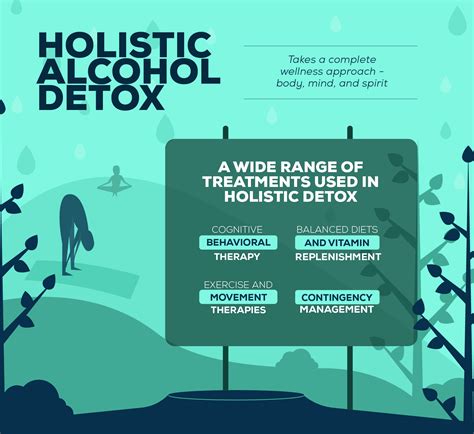
Alcohol Detox and Nutrition
Alcohol detox and nutrition are closely linked. A healthy diet can help to support the recovery process, while a poor diet can exacerbate withdrawal symptoms. Nutritional tips include: * Eating a balanced diet: Eating a balanced diet that includes plenty of fruits, vegetables, whole grains, and lean protein can help to support the recovery process. * Staying hydrated: Staying hydrated by drinking plenty of water and other fluids can help to reduce the risk of dehydration. * Avoiding trigger foods: Avoiding trigger foods, such as sugary and processed foods, can help to reduce the risk of relapse.Alcohol Detox and Exercise
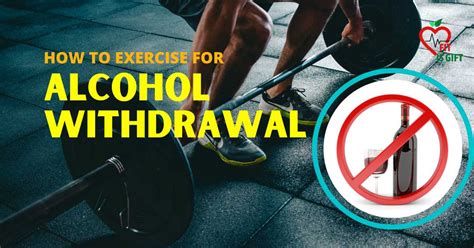
Alcohol Detox and Mindfulness
Alcohol detox and mindfulness are closely linked. Mindfulness practices, such as meditation and yoga, can help to reduce stress, improve mood, and increase energy levels. Mindfulness tips include: * Starting slowly: Starting slowly and gradually increasing the duration and intensity of mindfulness practices can help to reduce the risk of burnout. * Finding a mindfulness community: Finding a mindfulness community can help to provide motivation and support. * Incorporating mindfulness into daily life: Incorporating mindfulness into daily life, such as through deep breathing and progressive muscle relaxation, can help to reduce stress and improve mood.What is the first step in the alcohol detox process?
+The first step in the alcohol detox process is seeking medical attention. A medical professional will evaluate the individual's physical and mental health to determine the best course of treatment.
What are the risks associated with alcohol detox?
+The risks associated with alcohol detox include withdrawal symptoms, dehydration, electrolyte imbalance, and heart problems. It is essential to seek medical attention if you or someone you know is struggling with alcohol addiction.
What is the importance of nutrition during alcohol detox?
+Nutrition plays a crucial role in the alcohol detox process. A healthy diet can help to support the recovery process, while a poor diet can exacerbate withdrawal symptoms. It is essential to eat a balanced diet that includes plenty of fruits, vegetables, whole grains, and lean protein.
As we conclude our journey through the world of alcohol detox, it is essential to remember that recovery is a lifelong process. It requires commitment, dedication, and support. If you or someone you know is struggling with alcohol addiction, it is crucial to seek medical attention and embark on the journey towards recovery. Remember, recovery is possible, and with the right support and guidance, you can overcome the grip of alcoholism and live a healthy, happy, and fulfilling life. We invite you to share your thoughts and experiences with us, and to join the conversation on social media using the hashtag #alcoholdetox. Together, we can create a community of support and encouragement, and help individuals to overcome the challenges of alcohol addiction.
